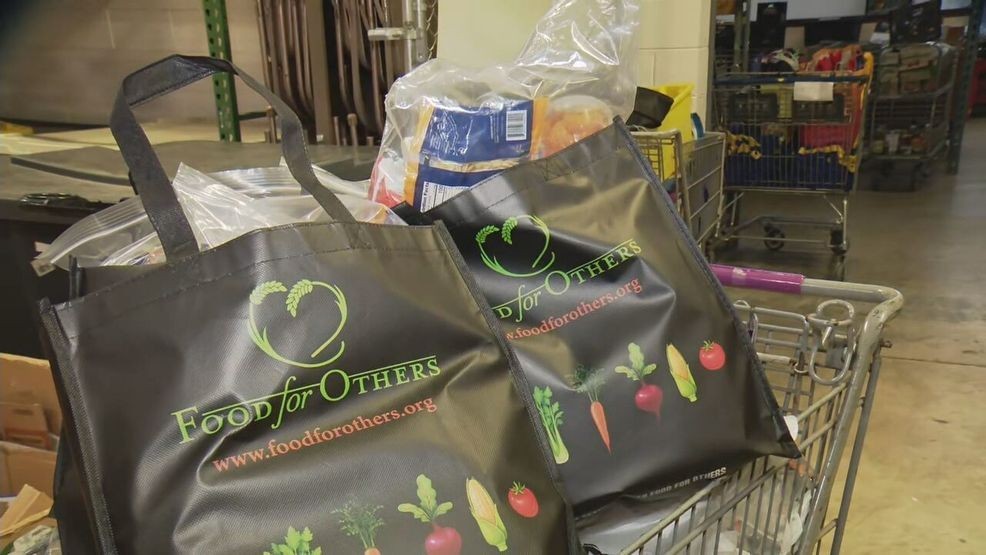USDA Budget Cuts Spark Alarm at DMV Food Banks and Pantries
In the bustling corridors of public service, a storm is brewing at food banks across the Washington D.C., Maryland, and Virginia (DMV) area. The recent budget reductions announced by the United States Department of Agriculture (USDA) are sending shockwaves through organizations that serve as lifelines for families facing food insecurity. With the imminent end of key programs, local leaders are grappling with the implications of this deep funding cut.
The Impact of USDA Cuts: A Closer Look
Earlier this month, the USDA made a startling announcement: it would be terminating two pandemic-era initiatives designed to channel more than $1 billion to farmers supplying fresh produce to food pantries, schools, and other community food resources. For many organizations, this news has ignited growing fears regarding their ability to sustain operations.
“The loss of the Local Food Purchase Assistance program (LFPA) is a devastating blow,” stated a spokesperson from the Maryland Food Bank. The cuts threaten to severely limit the availability of fresh fruits, vegetables, and seafood for families relying on these essential resources.
Voices from the Front Lines
To understand the repercussions firsthand, we reached out to Deb Haynes, Executive Director of Food for Others, located in Fairfax, Virginia, a dedicated organization that provides food to over 3,000 families each week.
“We are very concerned and we are looking closely at what’s going to happen,” Haynes expressed. In the past year alone, Food for Others served more than 64,000 individuals, with 20% of their distributed food sourced from the USDA Emergency Food Access Assistance Program, which has also faced cuts.
Preparing for the Summer Crunch
With schools out and children’s hunger rising, Food for Others is strategizing on how to adapt to these changes. “We are collaborating with the Capital Area Food Bank to explore additional methods of food recovery from grocery stores,” Haynes explained. This effort, known as food rescue, is aimed at salvageable goods that might otherwise go to waste.
Other measures on the table include potentially limiting how often clients can visit and how much food they can receive during each visit.
The Ripple Effect of Funding Losses
The impact of these cuts extends beyond immediate food access:
- Cancellation of LFPA: In March, the USDA announced the cancellation of a forthcoming $2.8 million LFPA funding round, crucial for supporting local farmers and providing meals to communities.
- Meal Impact: This funding previously provided 5.6 million meals (or 6.6 million pounds) within Baltimore City and 21 surrounding counties for the upcoming year.
- Unanticipated Food Shortages: Additionally, the USDA has curtailed funding from The Emergency Feeding Program (TEFAP), resulting in 13 lost food deliveries totaling over 460,000 pounds—a staggering shortfall as food insecurity remains a pressing issue.
The Maryland Food Bank typically relies on about $14 million annually in federal funding, which constitutes roughly 20% of their operational budget. With cuts deeply impacting their distribution capabilities, they are actively exploring ways to meet the burgeoning needs of individuals facing hunger.
How You Can Help
If you find yourself in need of assistance or wish to contribute to this vital cause, consider reaching out to Food for Others.
For free groceries or to offer a donation, click here. Your support can make a tangible difference in the lives of those who are vulnerable during these challenging times.
Conclusion: A Call to Action
The cuts to federal funding have unveiled the fragility of our food assistance networks, putting vulnerable populations at risk. In a time when food insecurity is on the rise, it’s essential for communities to rally together in support of those in need. By staying informed and involved, we can help ensure that no one has to go to bed hungry. Together, we can advocate for better solutions and support local organizations aiming to provide nutritious food to our neighbors.






